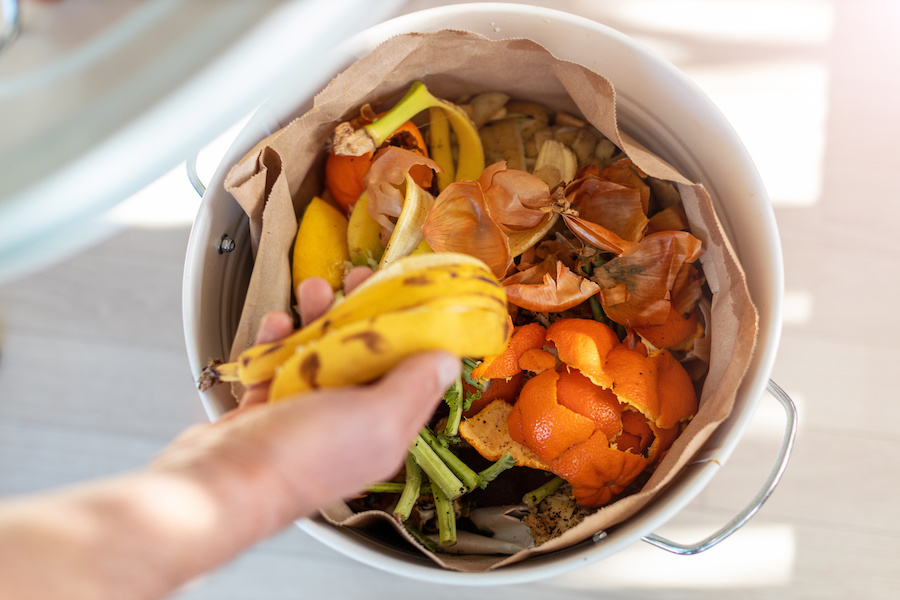
Small changes, big impact: Tips for a more sustainable lifestyle from UW Sustainability
The University of Washington has been a part of Earth Day since the very first event on April 22, 1970. Every year, Earth Day provides a reminder of the importance of sustainability. This can be a good time to try to incorporate sustainability practices into your routines and also learn more about various aspects of sustainability.
Getting around
Transportation choices can be a big contributor to greenhouse gas emissions. Using public transit rather than driving alone lowers the impact of a trip. The UW makes it easy to get around the area, with nearly all staff and students receiving a U-PASS offering unlimited rides on regional bus and train service (as well as King County Water Taxi and Kitsap Fast Ferries).
We’re also seeing longer daylight hours and even some sunshine this time of year, so it can be a great time to break out your bike to get around the city. Transportation Services has many resources to help you get started, including suggested routes to campus from many Seattle neighborhoods.
You are what you eat
Our food choices can also have a big impact. Thankfully, in most cases the sustainable choices are also the healthy choice. Eating less-processed fruits and vegetables, opting for local and organic when possible, is better for you and the environment.
One of the biggest ways to reduce the greenhouse gas footprint of your food is to reduce the amount of red meat in favor of plant-based items. This can also be a great time of year to start growing some of your own food. Even small living spaces can support a few plants, or you can volunteer at the UW Farm and help contribute to our on-campus food system.
Think before you buy
We all know it’s important to properly recycle and compost to keep items out of the landfill. But even better is to avoid waste at all, and that requires being mindful before purchasing items, both at home and at work.
Before buying something, ask yourself if it’s really necessary, or if there might be a way to use an existing item. That might mean buying used (UW departments can contact UW Surplus to see if they have specific items available, and everyone is welcome at the weekly UW Surplus public stores) or repurposing other materials. When you are buying something, try to see if there are options which have less impact in terms of the materials used to create the item, as well as how it will be disposed of at the end of its life.
Learn more
When thinking about sustainability, many people understand the environmental impact. It’s important to also understand how equity, diversity & inclusion are necessary components.
The Campus Sustainability Fund (CSF) has put together a resource guide on intersectional sustainability, with recommended resources such as videos, articles, books and more. These resources cover topics such as community resilience, cultural sustainability, and environmental justice. See the CSF resource guide here.
Find an event
Throughout April, groups across all three UW campuses are hosting events recognizing the importance of sustainability and the environment. Find volunteer opportunities, lectures, exhibitor fairs, student activities and more on the UW Earth Month events page.